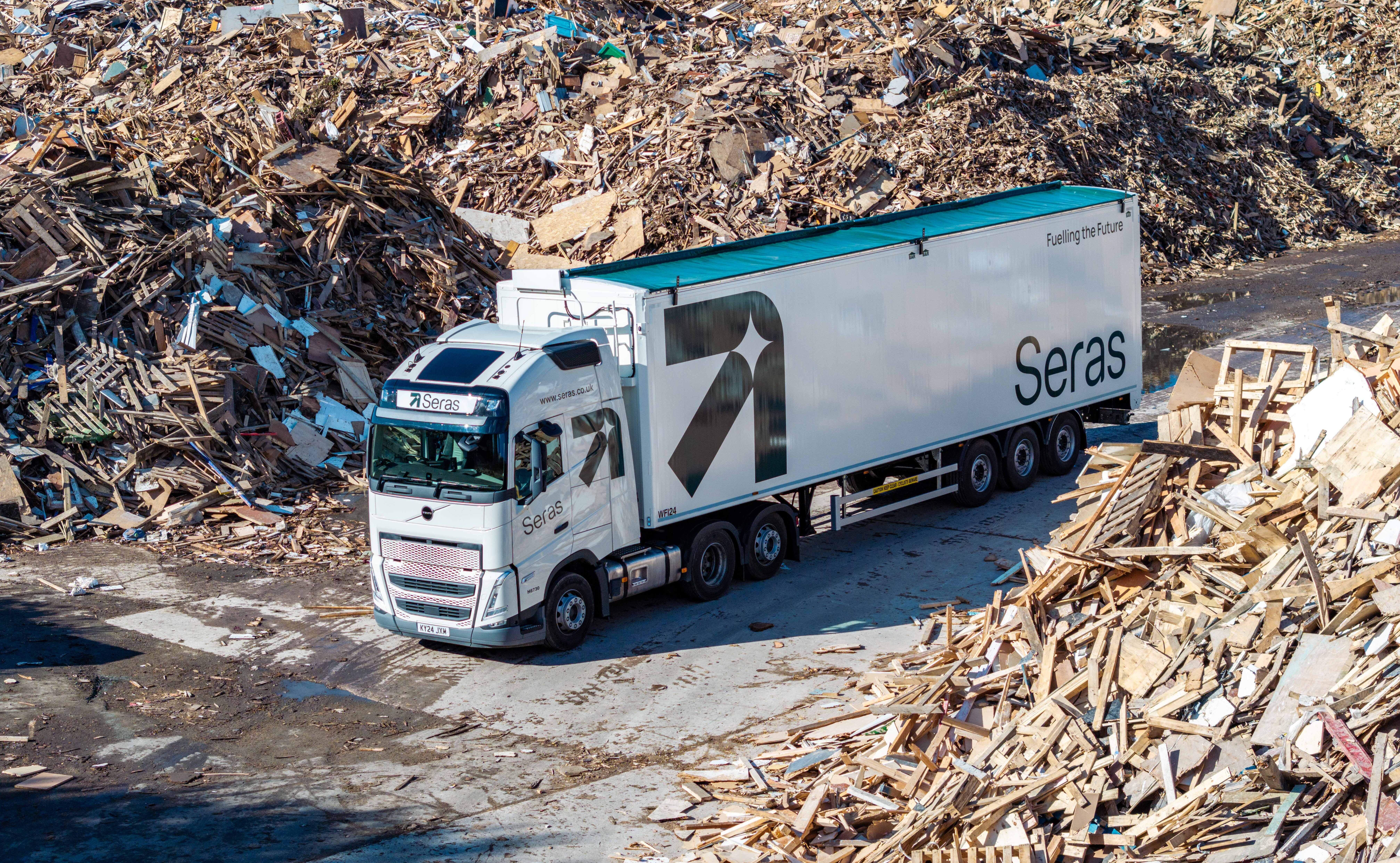In December 2023 sustainable investment firm Pioneer Point Partners acquired Seras. Since then, Pioneer have invested more than £13 million into the business. We sat down with Sebastian Miller, Principal at Pioneer Point Partners, to discuss what Pioneer’s plans and aspirations for the business are.
Who are Pioneer Point Partners and what do you do?
Pioneer Point Partners are an independent sustainable infrastructure investment firm. It is led by our four founding partners who have 90 years collective experience.
With deep sector specialisation, Pioneer focusses on the energy transition and environment sectors across Europe, where we see fundamental growth opportunities.
Why did Pioneer decide to invest in the former Esken Renewables business?
As a sustainable infrastructure fund, we were attracted to the company’s contribution to the UK green transition, primarily through supply and logistics of waste-derived biomass. There was a clear opportunity to grow the company’s core business, as well as expand into adjacent markets and be the fuel supply partner of choice for the future new wave of biomass projects such as sustainable aviation fuel, biogenic CO2 and biocarbon. These are all necessary developments for the next stage of the green transition which we are confident Seras have a big role to play in.
What are your plans for Seras’ business growth and diversification?
We have a vision of how we want the company to develop as a sustainable fuels specialist in the next five years. There are three levels to this.
The first is to continue to provide and improve on the service we deliver to our current customers whether that be investment into the existing fleet and Seras existing asset base. We want to supply more fuel to the existing customer base or to new customers in the biomass power sector.
Secondly, we want to diversify into adjacent industries where we can use our natural competitive advantages, namely our existing operational platform and our logistics network, which have synergies with existing business streams like Refuse Derived Fuel (RDF) and energy from waste plants.
The third part is to supply the waste-derived biomass feedstock needed for sustainable fuels (e.g. aviation fuels) and support industrial decarbonisation activities. For example, to decarbonise the steel industry you will need to create biocarbon from biochar, which naturally should come from waste-derived woody biomass. We want Seras to be the number one partner for the new companies who produce these highly valued green molecules. There’s a possibility to become more than just a supplier and a partner / minority co-investor in some of these technologies in the future.
How are Pioneer supporting the development of Seras’ ESG strategy?
Seras already have a solid ESG framework and very good social and governance policies. We applaud them for their work in this area and we want to help them strengthen their efforts further.
On the environmental side biomass makes up to 50% of the UK’s overall renewables mix and Seras makes a significant contribution to this. However, the business has a fleet of 100 trucks, so as a first step we’ve replaced older trucks with new more efficient vehicles. This is part of an overall investment of over £13m to upgrade the existing asset base. The investment in the new fleet has seen a 20-25% drop in CO2 emissions. We’re also looking at transitioning the fleet to cost effective and economically viable cleaner alternatives such as Bio-CNG, Bio-LNG, electrification or hydrogen in the future. Climate resilience is another important area and we want to ensure our sites are built for the future and are not at risk of flooding.
Does biomass have a role to play in the UK’s net zero transition?
We’re not going to hit our 2030 let alone our 2050 targets if we don’t support this sector. If the biomass industry disappeared tomorrow the UK would be left with 3 million tonnes of post construction waste wood every year, which no one would want to send to landfill. When people think of biomass, they think of virgin forests in other countries cut down, being turned into pellets and shipped into the UK. That’s not what Seras does. The business processes local post consumer wood and local forestry off-cuts and by-products which help to support proper forest management. Biomass is not just a large part of the energy and renewables mix; it is also a large part of the waste management system.
Biomass has an exciting future through the development of bioenergy carbon capture and storage (BECCS). When you add BECCS into the mix, biomass will be diverting waste wood from landfill and producing clean energy which results in negative emissions. That’s a very attractive proposition.
How can Seras support the development of advanced sustainable fuels in our clean energy future?
We take a technology agnostic approach. When businesses supporting advanced fuels are looking for fuel supply, they must feel confident that businesses like Seras can deliver this. We want to enter these arrangements in terms of a partnership – it is important that we are seen as an equal and not just a supplier. It is possible that we can integrate the business into the production team by co- investing in some new plants. Whilst some of these technologies may be starting their industrialisation stage, Seras have the operations and logistics capability to support the fuel supply of these emerging markets.



